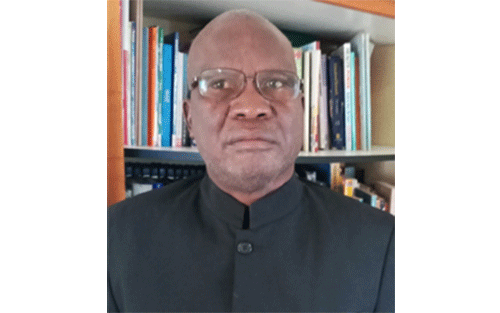The culture of migrating from one political party to another has been with this country for some time now. Whereas it is the right of every Namibian to hop from one political party to another as per Article 17, it is equally worrying when political heavy-weights in a party leave and join other parties, especially the majority party which is already saturated with members who have been with the party for some decades.
The saddest is seeing the members of opposition parties who were vocal and contributed greatly to the debates in the august House of Parliament leave their parties. The whole process smothers the lively debates and makes the Parliament dormant and in the long run “muzzles” the democratic way of doing things in that house.
Although it may be difficult to understand, the reasons which force the key politicians to hop around parties, there could be many factors they usually consider. It may not be easy for a seasoned politician to abandon the zone of comfort he or she was enjoying and venture into the unknown and unstable political territory. During the oppressive days of colonialism, the main factors might have been some nationalists turning sellouts, fear of victimization and perhaps the ethnic factors. There are many pre-colonial nationalists who abandoned their initial political parties and ended up hopping into a new party and sometimes into a promiscuous one. Many former founding presidents for one reason or another found themselves in other parties other than their initial ones.
Our own founding president moved from Swanu to OPO which later became Swapo.
Former first Zambian president Kaunda hopped from Mbikusita-Lewanika – Nkumbula’s Northern Rhodesian African National Congress and joined Mainza Chona’s United National Independence Party (UNIP). So was Mugabe’s move from Zapu to Zanu and many other political migrations.
It may be assumed that most political migrations were either based on nationalist philosophy or a particular discipline. Maybe those movements could be justified at that time.
As change is inevitable, it is possible that the agents of political migrations equally continue to soldier on. After nationhood, it was expected that nationalists would stabilise in their political cocoons, but what is happening is just the opposite.
Imagine that after being in the opposite fighting against the majority party all of a sudden one embraces its philosophy and ideology. This should sound ironic, as the leopard cannot change its spots at all. In the process, the new initiative will equally pull along his followers, especially those who joined with their bellies and not with their mental capacities.
The political migration of their mentor in many cases usually causes friction among the followers as they end up confused as to which party to join and finally vote for.
Of course, politics might be described to mean that it is dirty, but it is the incumbents who are soiled as per their hidden agendas. The current situation in Namibia in which opposition political giants are quitting their parties to join the majority party is constitutional but it is killing the spirit and culture of democracy. In other words, we will no longer listen to interesting and live debates on policies and other national issues emanating from those political gurus.
There could be reasons which motivated them to move from their political cocoons, but one wonders whether they could not settle those burning issues “in-house”.
One point for sure is usually the inability of the leaders to listen to reason and do what the rank and file of the party are aspiring for the party and its leadership. Above that there is the tendency of the party leadership to cling to the party apparatus and leadership forever and maybe until “death do the party leader apart”. However, there is also the issue of “wanting to succeed” the leader of the political party by all means without following the constitutional provision of the party.
This implies that the deputy leaders are sometimes impatient and want to take the party leadership without such a mandate, and perhaps with little support from other disgruntled party members. In this case, all that the party stands for is shelved aside personal interest takes centre stage and as a result, the aspirations of the masses and the nation are finally set aside. This portrays selfishness and personal aggrandizement, which finally culminates to the detriment of the interest of the nation.
Although there is no evidence that such opposition political heavy-weights were maybe talked out to join the majority party, the gap left out by them may take time to be filled or not at all. With the departure of political heavyweights, the constructive comments and contributions to the budget and the high level of corruption being spearheaded by some elements in government will now “lie fallow”.
Notwithstanding all these realities, many people may go to where the grass is greener, but our politicians should couple political activities with self-discipline, come rain or sunshine!
Standing one’s ground despite what happens is a true virtue, which every fair-minded politician should adhere to. The Namibian political heavy-weights who cross over to the majority party for whatever reason should know that they are not doing Namibians any good.
In reality, wherever the receiving party should think twice about trusting them and they will need ample time to adjust and go through the ten-years period of waiting to get either ‘in the kraal’ or ‘in the pot.’
*Prof. Makala Lilemba is an academician, author, diplomat, motivational leader, researcher and scholar.



